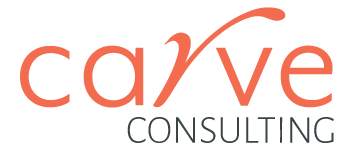We live in an age of unprecedented ambiguity, but for those that are self-aware an age of opportunity.
Peter Drucker, in his book “Managing Oneself,” explains the keys to keep yourself engaged and productive during a career that may span 50 years includes:
- Cultivate a deep understanding of yourself by identifying your most valuable strengths and most dangerous weaknesses
- Articulate how you learn and work with others and what your most deeply held values are
- Describe the type of work environment where you can make the greatest contribution.
Only when you operate with a combination of your strengths and self-knowledge can you achieve true and lasting excellence.
Peter Drucker
In an interview, your opportunity to articulate these key ideas are often found in the vague, open-ended question, “So how would you describe your workstyle?” or “How do you like to be managed?”
But these workstyle questions doesn’t just require a single answer. Instead it is the result of a number of different personal qualities and approaches to work.
As more organisations move to remote or blended operations, they are looking to understand their employees at an earlier stage and in more depth. The dispersed work locations doesn’t support the previous methods of “getting to know” their employees over time and in-person.
Many employers have started asking a detailed range of question about workstyle, either during an interview or as part of the onboarding process. So as part of your preparation for your interview, or even just to better understand yourself and how to maximise your work productivity, take the time to consider some of these questions:
- On a continuum from extrovert to introvert, where would you place yourself?
- What’s your preferred way to receive feedback, taking in consideration both time and speed?
- What’s your orientation toward conflict?
- What time of day are you most productive?
- How would you describe your communication style?
- What motivates you the most?
- What are your top 3 values?
- What do you consider your “superpower”?
- How do you generally to organise yourself – eg. week and workday?
- What do you think you’re more sensitive about compared to others?
- What do you tend to pick up very quickly compared to others?
- What are some misconceptions people have had about you in the past?
- What takes you longer to pickup compared to others?
- What’s your biggest work-related pet peeves?
- What are some of your quirks?
- What does “work-life balance” mean to you?
- What would others who’ve worked with you say are your greatest strengths?
- What would others who’ve worked with you say are your greatest weaknesses?
- What comprises your ideal work environment?
“We’re going into a world where people don’t always sit next to each other. We have to make sure we can build a strong relationship working together.”
Kim Christfort, coauthor of Business Chemistry: Practical Magic for Crafting Powerful Work Relationships
Understanding and clearing expressing your workstyle is important in your overall career success and job satisfaction. It will ultimately help you get along with your coworkers, in your current or new role, and contribute your best work.

